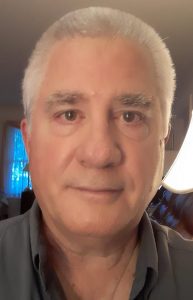Therefore Pilate said to him, “So you are a king?” Jesus answered, “You say correctly that I am a king. For this I have been born, and for this I have come into the world, to testify to the truth. Everyone who is of the truth hears my voice.” Pilate said to him, “What is truth?” (John 18:37,38)
With this famous exchange, Pontius Pilate distinguished himself as a philosopher. Or maybe a lawyer. Perhaps a PR spin doctor? Definitely a political consultant.
The Roman governor of first-century Judea anticipated one of the central questions of postmodernity. What is truth, after all? Absolutes are now frowned upon from academia to theology to popular culture. Everything is up for debate. Not just the big questions of life and morals, but basic facts.
You say the 2020 U.S. presidential election was decided fairly. I say it was stolen. You say Elvis died in 1977. I say he’s alive and conducting weddings at a pink chapel in Vegas. No amount of empirical evidence will convince me otherwise.
It’s “my truth” — a hideous phrase beloved by people who like to make questionable assertions, usually based upon feelings rather than facts, without being questioned about them. “My truth” trumps “the truth” in the minds of millions.
“’My truth’ trumps ‘the truth’ in the minds of millions.”
Conspiracy theorists, basement-dwelling quacks and personality cultists aren’t the only folks susceptible to obvious lies. Holocaust deniers occupy prestigious chairs at major universities. A few scientists — and many politicians — continue to reject any human impact on climate change. After tens of millions of deaths inflicted by communist tyrants over the past century, some distinguished thinkers still contend Marxism is the answer to the world’s social and economic ills.
Relativism enjoys wide acceptance in enlightened circles but has wreaked havoc on the whole concept of truth. Shades of gray in human affairs are inescapable, to be sure. But if nothing is black and white, does truth even exist?
Truth and facts
Let’s distinguish here between truth and facts, although they’re close cousins. Facts help lead us to everyday truth and to larger truths about right and wrong, good and bad. For instance:
The fact that the 2020 presidential election was indeed decided fairly, despite countless bogus claims otherwise, helps lead us to the larger truth that fair elections are essential to democracy and worth protecting from the bad actors — domestic and foreign — who seek to undermine them.

Erich Bridges
Baptist author and ethicist David Gushee wrote an interesting series of columns in Baptist News Global a few years ago titled “Truth Decay.” I recommend it. In the first piece, he starts with Pilate’s question — What is truth? — and briefly describes various forms of truth, including the “correspondence theory.”
“A truthful statement corresponds with reality,” Gushee says. “When people’s statements routinely do not correspond with the facts to which their words refer, and they know this to be true, they are not just lying, but they have become liars. When people sink so far as to become liars, they routinely violate a crucial moral rule recognized across time, cultures and religions, they damage and threaten the survival of their important relationships, they harm those to whom they lie, and they reveal a substantial flaw in their character.”
So facts still matter in the search for truth. That used to go without saying. “Just the facts, m’am,” fictional LAPD detective Joe Friday demanded from crime witnesses on the Dragnet TV show.
Old-school newspaper reporters sought the same thing — facts — when stories broke. The truth was left up to readers, editorial writers and history. But those days are gone. Journalists, faced with brutal competition for readers’ and viewers’ attention, must tell compelling stories, establish “narratives,” capture imaginations. That’s good storytelling, but boring facts sometimes get lost in the process.
Manipulation of reality
Facts always have been subject to interpretation, of course. History is written by the victors, we’re told. Interrogate five eyewitnesses to an event and you’ll get five different versions of what happened. The powerful have used lies and half-truths throughout history to control the gullible.
“The powerful have used lies and half-truths throughout history to control the gullible.”
But the manipulation of reality reached a new stage in the 20th century with the use of mass-media propaganda. The “Big Lie,” introduced by Hitler in Mein Kampf (and later perfected by Stalin and other totalitarians), was a political strategy designed to bludgeon people with falsehoods so outlandish they began to doubt what they had seen with their own eyes. The result: submission to the lie or at least abandonment of the truth.
“This constant lying is not aimed at making the people believe a lie, but at ensuring that no one believes anything anymore,” wrote German philosopher and historian Hannah Arendt. “A people that can no longer distinguish between truth and lies cannot distinguish between right and wrong. And such a people, deprived of the power to think and judge, is, without knowing and willing it, completely subjected to the rule of lies. With such a people, you can do whatever you want.”
The advent of digital media in our age has vastly multiplied the number, power and reach of such lies. Bots launched by Russia, China and other authoritarian states spread fake news, conspiracy theories and hoaxes at the speed of light, “flooding the zone” with falsehoods. Willing liars closer to home (Trump, extremist “news” outlets, etc.) run with them, spreading doubt, confusion and suspicion.
Billionaire loudmouth Elon Musk, one of the most powerful purveyors of digital lies and misinformation, has posted and re-posted dozens of antisemitic, anti-Muslim and especially anti-immigrant conspiracy theories on X (formerly Twitter), his social media platform. His latest hobbyhorse: Democrats are feverishly importing “illegals” whose votes will tip the 2024 election their way.
There’s not a shred of truth in the charge, but it serves the double purpose of smearing Democrats and creating even more hostility toward immigrants. Ironically, Musk is himself an immigrant (from South Africa via Canada), but he has the advantage of being white and stupendously rich.
Even for those not taken in by the lies, it’s hard not to become frustrated and weary with the sheer onslaught of questionable information. Politicians always have been dishonest and the media have always been slanted, we reason. So they’re all liars, we declare, throwing up our hands in despair and exasperation.
No, they’re not all liars.
If you believe that, you have surrendered to lies, and you’re on your way to becoming one of the helpless sheep Arendt wrote about. As Jack Nicholson snarled in one of his most famous roles, “You can’t handle the truth.”
The truth depends upon people determined to find it, people who refuse to give in to a culture of lies.
If you don’t insist on seeking the truth, you don’t deserve it.
Erich Bridges, a Baptist journalist for more than 40 years, has covered international stories and trends in many countries. He lives in Richmond, Va.
Related articles:
Truth Decay: What is truth? | Opinion by David Gushee
The truth and nothing but the truth | Opinion by Greg Garrett
The white evangelical war on truth | Analysis by Joel Bowman
Why we must go there | Opinion by Mark Wingfield


